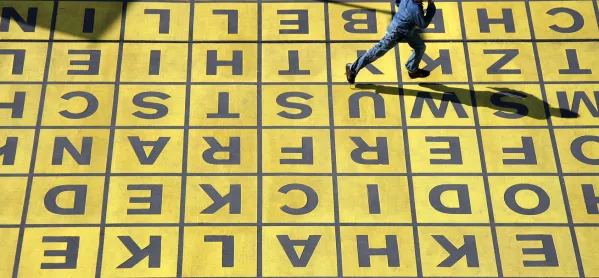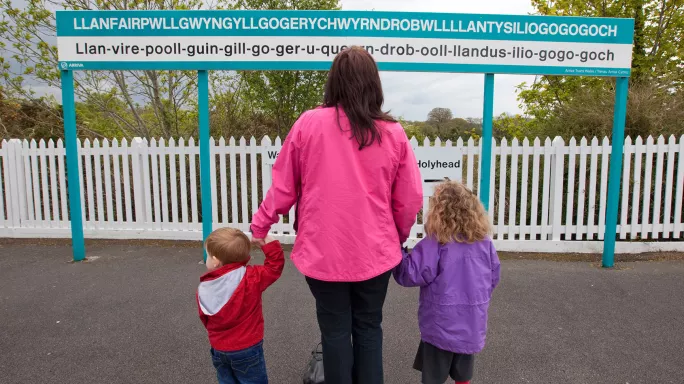- Home
- Three ways to teach vocabulary so it sticks
Three ways to teach vocabulary so it sticks

Many teachers will have had the experience of being startled to discover that many of their pupils don’t know the meaning of a certain word.
Often these words do not seem that unusual.
So how on earth can we expect children to understand what they read when their vocabulary is so limited?
Quick read: How and why we targeted tier 2 words
Quick listen: How to teach writing, according to the research
Want more articles like this? Join our Tes Teaching and Learning Facebook group
Strategies that don’t work are getting children to look words up in a dictionary of just telling them definitions.
Wrong approaches
Using a dictionary doesn’t work because often the definition is just as tricky to understand as the original word. Even if it isn’t, a simple definition doesn’t give any sense of the context: when it is - and isn’t - appropriate to use the word.
The same applies when teachers share definitions without further elaboration. It is often the case that one word is not a simple synonym for another, and can’t be easily be swapped without a subtle change in meaning. Often the synonym connotes a greater degree of precision or complexity that the original, and it is this detail that is vital to share, and practice, with pupils.

Consider the word ‘benevolent’. We might tell pupils it means ‘kind.’ But to do so would be to omit the dimension of tolerance, as well as kindness, that makes ‘benevolent’ a more complex and interesting word than ‘kind.’
‘Distraught’ and ‘forlorn’ might both mean ‘sad’, but one is not forlorn when someone dies or distraught when you feel a bit down in the dumps.
Best method?
Isabel Beck, in Bringing Words to Life, talks about these more complex, precise words as being tier two words.
Tier one words are the everyday words that almost all children just know: table, happy, lucky, fast.
Tier three words are specific technical words to a particular area: isotope, piano, volcano; words that children might not know at the start of a topic, but are easily taught and have a fairly fixed definition.
Tier two words, by contrast, are powerful because of the way they carry latent shades of meaning. Distraught is much more precise than sad because it tells us about the degree of sadness. ‘Genuine’ is more complex than ‘real’ because it connotes authenticity, honesty and trust.
In order to help children understand this complexity, Beck outlines various useful strategies that we have used with great success in our classrooms.
1. Example/non-example
When discussing the adjective ‘sleek’, a teacher might share a range of nouns in turn, asking pupils to answer ‘smooth man’ if sleek is an appropriate descriptor and saying nothing if it isn’t. So, for example, the teacher might share this list: a porcupine, a duck, a tree, a car.
2. Concrete examples
The second of Beck’s strategies we frequently use is that of generating situations, contexts and examples. How might a cook, a musician, a basketball player, a teacher show they are:
• Versatile?
• Industrious?
• Clever?
• Expert?
We might ask pupils, have you ever done something cautiously or furtively? Or clap if you would like to be described as: vivacious, sullen, dejected, triumphant, loathsome? Or ask them: which would you rather be? Infuriated or elated? Belligerent or ecstatic? Would you admire someone who did x? Would you be flabbergasted if your friend did y?
3. Questioning
Then finally, we ask clusters of four true or false questions.
- If you are toppling, you are the best at something. True or false?
- Toppling means wobbling so badly you might fall off. True or false?
- If you are toppling, you are right at the top of something? True or false?
- Toppling means something that might happen if you are unbalanced. True or false.
Making it stick
These kinds of activity allow the complexity and precision to be illustrated by placing the word in different contexts: some correct, some incorrect.
But all this work will go to waste if children only encounter new words once. In order to keep new vocabulary on the boil, we place new words on cards on a word bank, which grows larger and larger as the year progresses.
Then each day we draw out a couple of words from our word bank so that over time, all words are revisited.
Clare Sealy is a headteacher in London
Further reading
- Why vocab is not the key to success, but it is a great place to start
- What does it mean to ‘know’ a word?
- How a focus on vocabulary risks damaging comprehension skills
Keep reading for just £1 per month
You've reached your limit of free articles this month. Subscribe for £1 per month for three months and get:
- Unlimited access to all Tes magazine content
- Exclusive subscriber-only stories
- Award-winning email newsletters

